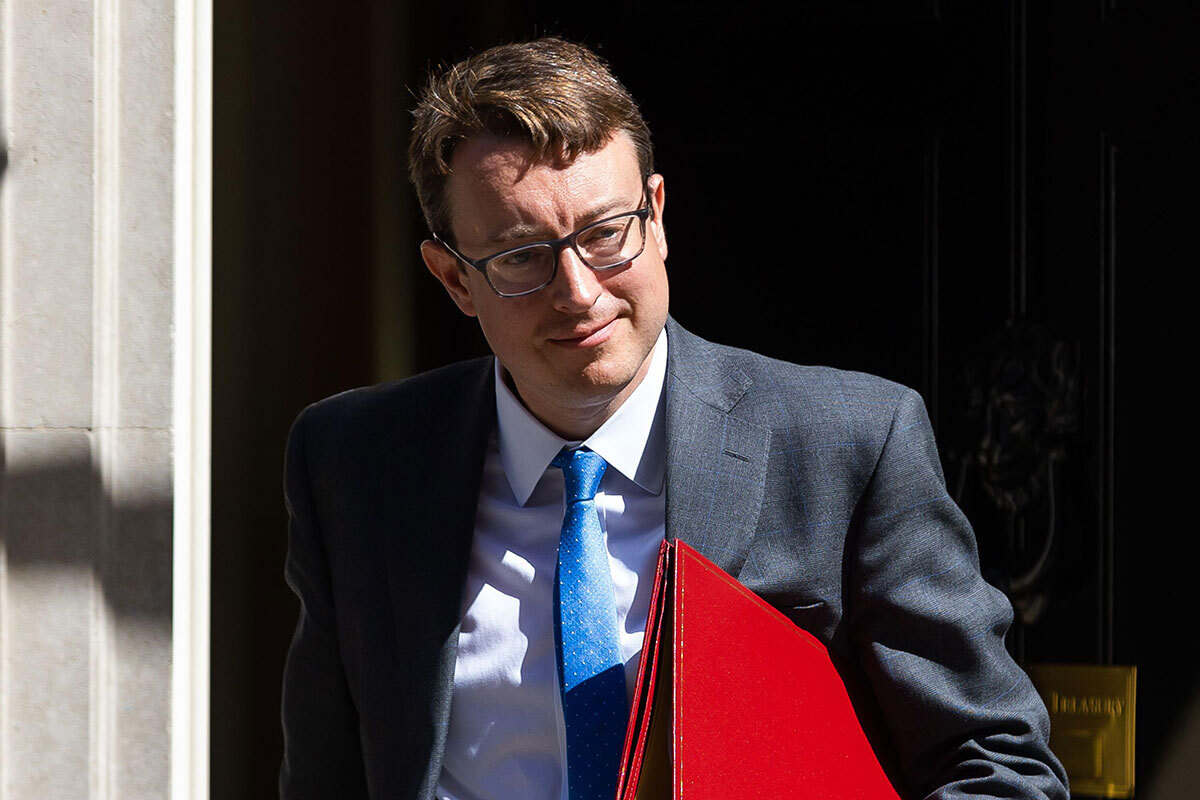Who is new housing minister Lee Rowley?
Lee Rowley, a former banker turned Derbyshire MP, has been named as the new housing minister. But who is he? James Wilmore reports
Here we are again: a new housing minister.
Lee Rowley, the MP for North East Derbyshire, has been given the job, making him the 13th Conservative to hold the role in the past 12 years.
His predecessor, Marcus Jones, lasted 62 days. Before that, Stuart Andrew spent five months with the brief before quitting amid the rebellion against then-prime minister Boris Johnson.
Barring any major shocks, Mr Rowley should last longer as new prime minister Liz Truss hopes for a period of stability, in ministerial terms at least.
But what do we know of the 42 year-old Mr Rowley? And what can the sector expect?
Background
Born and raised in Chesterfield, Mr Rowley is the son of a milkman. Both his grandfathers were miners. His career path, however, was destined for a different turn.
After becoming head boy at his local high school, Mr Rowley went on to read Modern History at Lincoln College, Oxford, before doing an MA in History at Manchester University.
Prior to entering parliament, Mr Rowley spent 13 years working in finance and consultancy roles, including spells at Barclays, Santander, KPMG and Co-op Insurance. He started off as an estate agent, he once said in an interview, but this is not listed on his LinkedIn profile.
During his career outside parliament, Mr Rowley served for eight years as a councillor at Westminster City Council. He stepped down in 2014 to focus on becoming an MP.
Parliamentary career
It took Mr Rowley three attempts to become an MP. Clearly, he is not afraid of a challenge. In 2010, he unsuccessfully ran against Dennis Skinner in Bolsover, a seat the 90 year-old Labour veteran had held since 1970.
Mr Rowley was again defeated in 2015 in North East Derbyshire. He ran again in the same constituency in 2017 and won – becoming the first Conservative to hold the seat since 1935.
“My constituency is the land of socialist rent rebels, the birthplace of (the now retired) Dennis Skinner,” Mr Rowley once wrote. “As recently as 1997, it had a Labour majority of over 18,000.”
His victory was a clear precursor to the Conservative’s toppling of Labour’s so-called ‘Red Wall’ in 2019.
In an interview last year with the Yorkshire Post, Mr Rowley gave an idea of what attracted him to politics. “When I was growing up in Derbyshire, the things which the Conservative Party stood for – ambition, aspiration, a hand-up, not a handout, making sure that we have strong communities and strong bonds within them, but also centering that very much on making sure that people have the right to make decisions about their lives – that’s the thing that appealed to me, it got me interested in politics,” he said.
In 2020, he was made deputy chair of the Conservative Party; a role he relinquished a year ago. He was then appointed a junior minister at the Department for Business, Energy and Industrial Strategy (BEIS) and a government whip as Lord Commissioner of the Treasury.
Mr Rowley already has form in the built environment arena as his brief at BEIS included construction. However, his tenure at BEIS only lasted nine months. Much like housing ministers, construction ministers rarely last long.
He was among the wave of ministers that quit in July amid the widespread backlash against Mr Johnson, which led to him eventually resigning as prime minister.
Mr Rowley’s early backing of Kemi Badenoch to be Conservative leader appears not to have deterred Ms Truss from showing faith in him.
Views on housing
Mr Rowley does have some form in the housing sector, compared with some of his predecessors.
In 2008, he was part of a working group for centre-right thinktank The Centre for Social Justice (CSJ) that published a report on housing and poverty. Among the recommendations was to urge the government not to set targets on building social homes as providers should be “free to decide” how they use their resources.
Veteran Conservative MP Iain Duncan-Smith, founder and chair of the CSJ, wrote: “Our recommendation is that councils and housing associations should be free to use new social housing, and existing social housing as it becomes available, as they see fit.”
The organisation called for the rules to be changed so that housing associations could let social homes on assured shorthold tenancies to “make management of social housing more effective, greatly reducing the need for ASBOs and other court orders”.
Mr Rowley, who supported Brexit, showed a strong interest in planning issues after being involved in a battle over green belt development in his constituency. In August last year, he wrote to then-housing secretary Robert Jenrick urging him to intervene on a local plan to prevent building on the green belt, according to local reports.
During a Westminster Hall debate on the Planning White Paper in December 2020, Mr Rowley said he welcomed “many of things” the government was trying to do as the system was “broken” in places.
He also said a replacement to the Section 106 system “could be good in principle”. A plan to replace Section 106 with a national Infrastructure Levy has caused widespread concern among many in the social housing sector.
His new boss, Ms Truss, has also voiced her desire to tackle the problems around planning, but is wary of causing friction among her own MPs, as happened with Mr Johnson’s efforts.
Mr Rowley also appeared to show some interest in the Right to Buy for housing associations tenants. In June last year, he asked then-housing minister Christopher Pincher a question in parliament about when the scheme would be fully rolled out. At the time, Mr Pincher said the findings of the Midlands pilot were being reviewed.
Before leaving office, Mr Johnson announced that the Right to Buy for housing association tenants would be introduced on a wider scale. Many think the policy will not see the light of day, but could Mr Rowley be tempted to bang this particular drum as housing minister?
Mr Rowley appeared to be a staunch advocate of homeownership. “The ability and aspiration to own a home, or the ability to rent a decent one, is a cornerstone of our democracy,” he said in a debate in 2018.
“It is usually the largest purchase that we ever make, and it roots us in our communities, gives us control over the place in which we live and allows us over time to accrue the capital that gives us the freedom to do as we wish in our lives.”
Sign up for our daily newsletter
Already have an account? Click here to manage your newsletters












